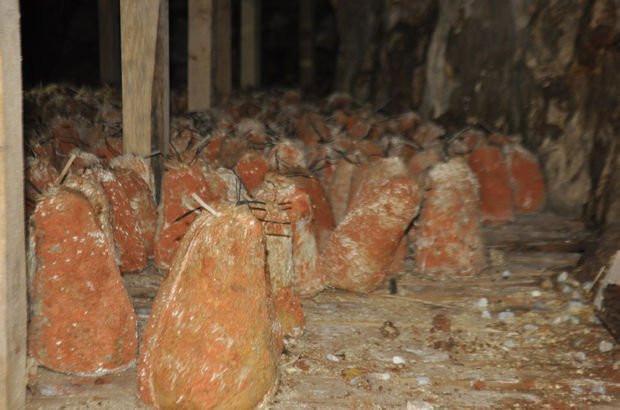
A special type of cave-aged cheese in the Central Anatolian province of Karaman has set its sights on becoming a rival to France’s famed salty blue cheese, Roquefort. But before that, it must fight to eliminate its imitators.
Only 42 tons of the cheese, known as Divle tulumu, were produced this year and are waiting for eager customers from all over the world to buy them.
The cheese rests inside a narrow cave 36 meters underground that stretches 256 meters, slowly turning a purplish or reddish shade from its initial white color, as mold covers the containers.
The cheese, which took up to almost one year in total to be sold in markets after turning from the state of milk, has earned a geographical indication in 2017, a type of intellectual property right which identifies a good as belonging to a territory.
But the producers of the cheese and Karaman’s residents are growing frustrated towards a “fake” cheese offered under the name of “Divle tulumu” at markets.
A new barcode system has been implemented this year to distinguish the cheese from fake cheese.
Tacettin Durna, the headman of the village of Divle, where the cheese is produced, said that 80 percent of the cheese produced was sold before it was taken out of the cave.
Durna also noted that there are around 400 tons of “fake” divle cheese in the market and the price is around 120 liras ($14) per kilogram.